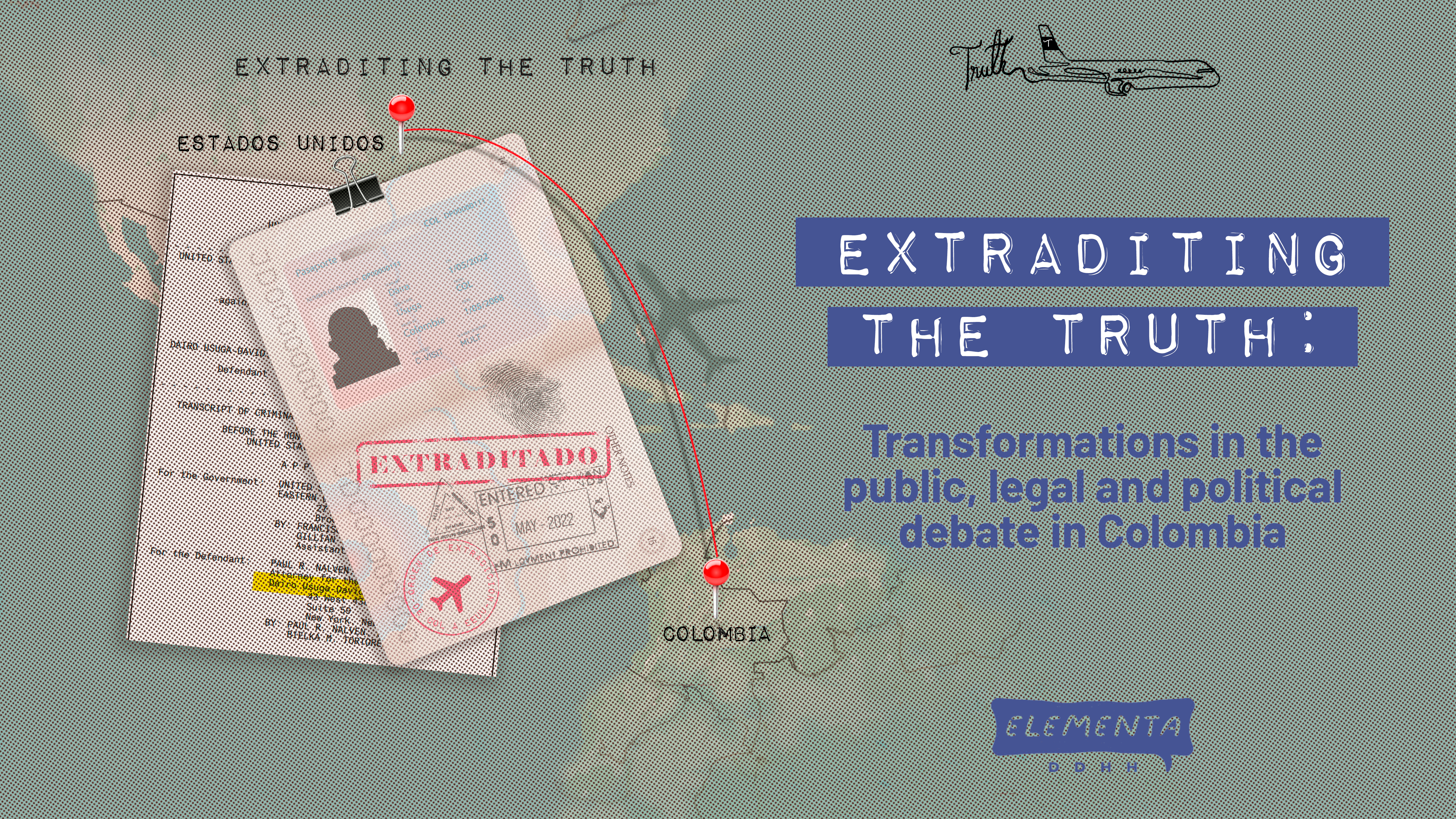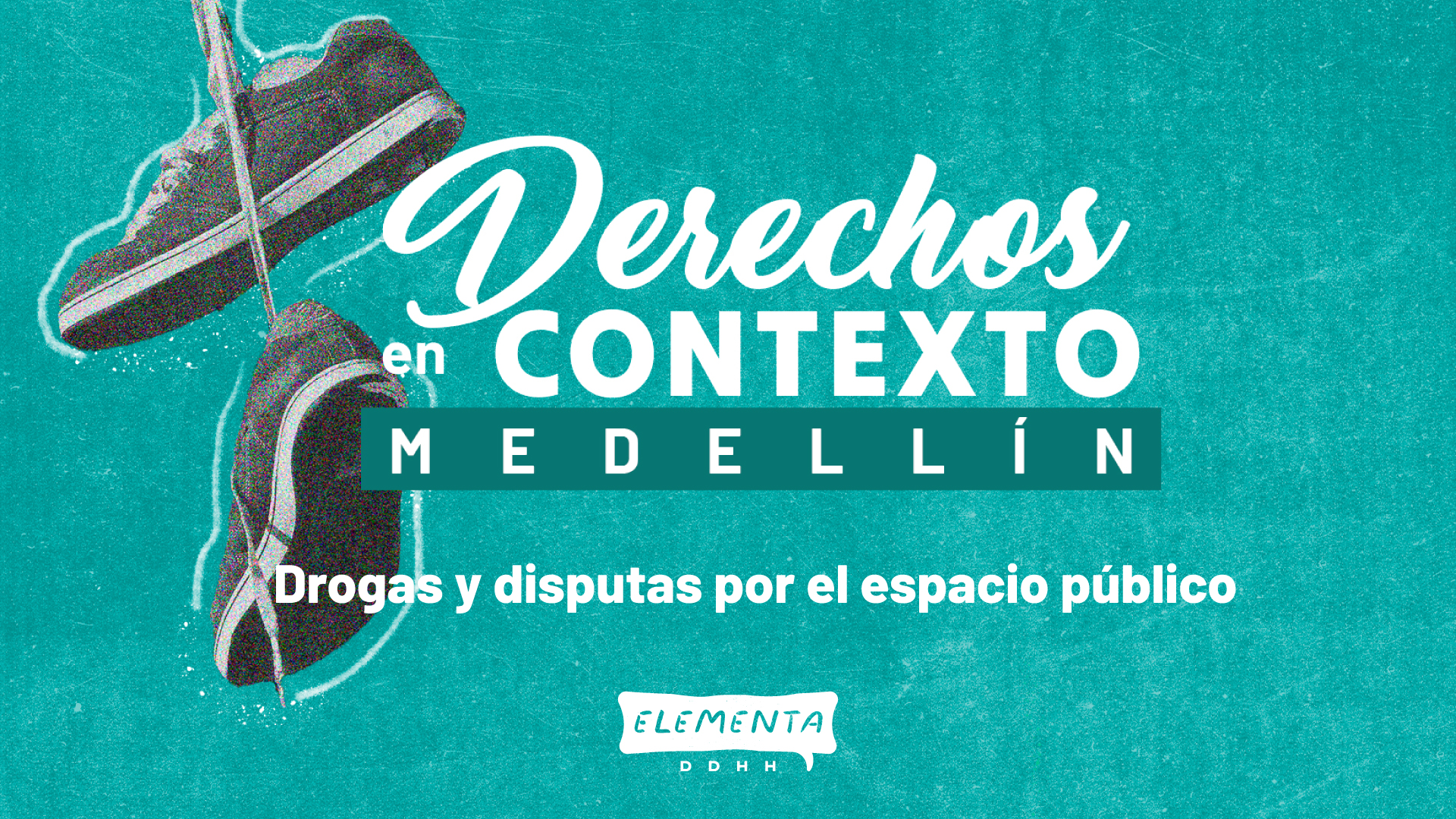Aquí encontrarás todos los documentos publicados por Elementa
Extraditing the Truth: Transformations in the public, legal and political debate in Colombia
julio 23, 2024Categorías:
COMPARTIR:

At least since the 1970s, the operation of the various links in the illicit drug market has been ensured through territorial control, which has involved a violent dispute over the State’s legitimate monopoly on the use of force. This has meant selective and collective assassinations, displacements, massacres, threats, sexual violence, and, in general, a whole insane repertoire of forms of victimization that has fanned the flames of the -already complex- dynamics of state-building and democratization in Colombia. In addition to these human rights violations, there are the systemic grievances suffered by regions producing crops declared to be illicit, as well as the stigmatization (lethal and non-lethal) resulting from the prohibitionist narrative.
This leads us to conclude with a negative balance of the drug prohibition policy in that, as a direct or indirect consequence of its global mandate, serious human rights violations have been unleashed.
Under this logic, Elementa promotes research, advocacy, and strategic communication processes to link drug policy with truth, justice, and reparation principles. Our institutional objective focuses on using these principles, which are typical of transitional justice studies, in the current debates about the effects and consequences generated by the prohibition policy in Colombia.
With this in mind, this research, which is still in progress, seeks to investigate the obstacles and opportunities that extradition and judicial proceedings in the United States for drug-related offenses pose in terms of truth and justice for victims of serious human rights violations.
This document presents the first developments of our analysis in this regard, organizing the text as follows. The first part presents the socio-political context of extradition in Colombia, including:
- the beginning of the public debate on extradition,
- the changes in the “profile” of extradited persons,
- the negotiation of the extradition treaty with the United States, and
- an account of extradition relevance in the relationship the Colombian and U.S. governments.
In the second part, the legal context of the subject is discussed, mainly related to
- the application of the extradition treaty with the United States,
- the current jurisprudence and the parties involved, as well as
- the configuration adopted by the Special Jurisdiction for Peace [JEP] on the subject and the line of case-law issued by the Constitutional Court.
The third part details two emblematic cases that show the obstacles that extradition represents for the Truth processes: the trajectory of “Otoniel” and “Jorge 40”. The fourth part presents the efforts made by different victims’ groups and Colombian institutions to avoid extraditions or, once they have been carried out, to continue the processes of contributing to the Truth from the United States. The text closes with a summary of the findings and recommendations made by the Truth Commission on extradition and
explaining how Elementa took part in this investigative and advocacy agenda.


